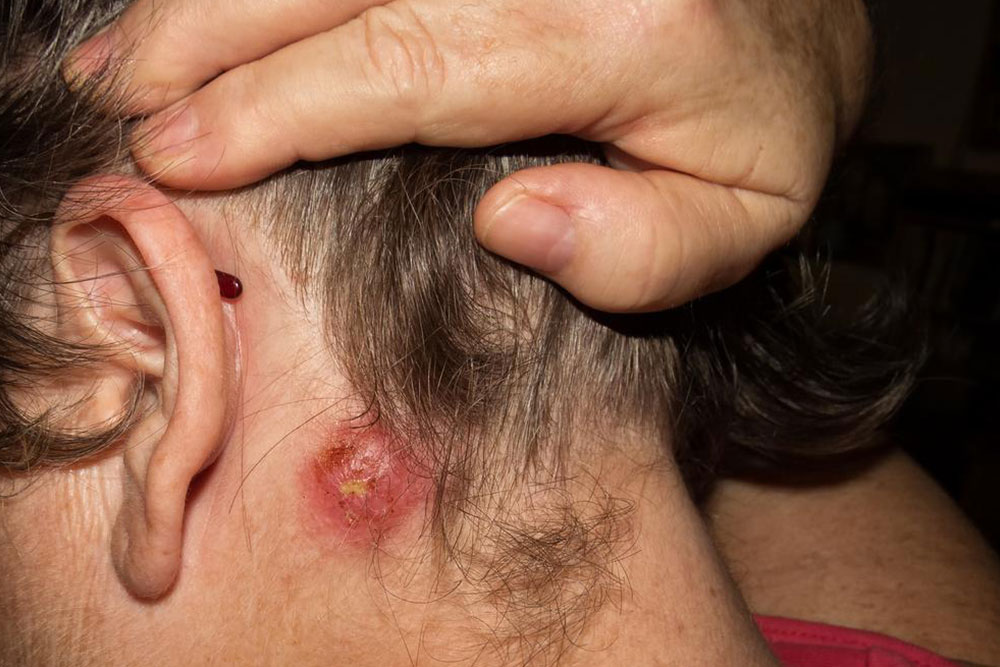Managing Feline Skin Allergies with Specialized Diets
This article provides comprehensive insights into feline skin allergies, common symptoms, triggers, and effective dietary management. Discover specialized cat foods formulated to reduce allergic reactions, improve skin health, and support your cat's overall well-being. Consult your veterinarian to choose the best diet for your feline friend’s specific needs and ensure their comfort and health.

Understanding and Addressing Cat Skin Allergies
Typical Skin Issues in Cats
Abscesses
Local skin wounds caused by cats scratching or being injured can become infected, leading to abscess formation. Treatment depends on infection severity.
Feline Acne
Appearing as blackheads on the lips or chin, feline acne may result from contact with chemicals in shampoos or food bowls.
Ear Mite Infestation
Signs include head shaking and brown wax near the ear canal. Proper diet and treatment are essential for relief.
Food-Induced Dermatitis
Reactions to preservatives or artificial ingredients can cause intense itching, swelling, and discomfort, indicating food allergies.
Ringworm
Highly contagious, ringworm manifests as round patches, hair loss, and red rings. Veterinary care and sanitation are vital.
Psychogenic Alopecia
Stress or nervous energy can cause excessive grooming leading to hair loss, manageable through diet and environmental enrichment.
Preventing Skin Allergies in Cats
Consult your veterinarian for proper diagnosis and treatment. If food allergies are suspected, switching to specialized hypoallergenic diets can help reduce allergic reactions. Benefits include allergen breakdown, improved digestion, and overall skin health. Monitoring and modifying the diet may be lifelong, especially for chronic conditions. Even non-nutrition-related allergies may benefit from these diets by alleviating symptoms.
Common Triggers of Feline Skin Allergies
Dietary Sensitivities
Novel ingredients or changes in diet can provoke reactions. A vet can help identify suitable hypoallergenic options.
Environmental Allergens
Pollen and dust are difficult to diagnose but can cause atopy. Proper diet choices support immune health.
Insect Bites
Bites from fleas, mosquitoes, or bees introduce allergens that cause localized or widespread reactions.
Bacterial Infections
Secondary bacterial infections may occur due to skin irritation. Diet quality supports skin barrier health.
Mites
Infestations like ear mites can spread and worsen skin conditions if untreated.
Recognizing Symptoms of Skin Allergies
Pimples, blackheads, or skin breakouts
Crusty patches or scabs indicating dermatitis
Hair loss, often symmetrical
Extreme itching and skin damage from scratching
Lesions or lumps, such as eosinophilic granulomas
Unusual body odor
Persistent licking or rubbing beyond normal grooming
Top Dietary Choices for Managing Feline Skin Allergies
Royal Canin Hypoallergenic HP
Designed with hydrolyzed soy proteins, this formula minimizes immune reactions and supports skin strength, digestion, and coat health with added omega-3s and fibers.
Hill’s z/d Sensitive Skin & Stomach
This moist diet uses hydrolyzed chicken liver to reduce allergen exposure, aiding cats with skin sensitivities and gastrointestinal issues alike.
Hill’s d/d Skin & Food Sensitivities
Free from soy, grains, and gluten, it features antioxidants and fatty acids to promote healthy skin and a resilient immune system. Its palatable texture is suitable for picky eaters.
Blue Buffalo Basics Grain-Free
Ingredients include duck, peas, and pumpkin, avoiding common allergens like chicken and poultry by-products, thus promoting digestion and reducing skin irritation.
Instinct Limited Ingredient Diet
Made with turkey as the primary protein, this wet food excludes common allergens, offering balanced nutrition with natural omegas that support skin and immune health.
Note: Choosing the right diet for your cat's skin issues should involve veterinary guidance. Proper diagnosis and tailored food choices are essential for effective management.










